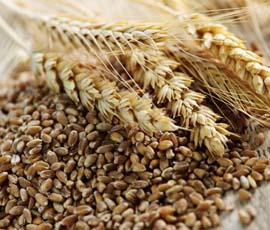Biotech needed to boot world wheat output

Flatlining yields and under-investment means wheat is losing out to other crops across the world ,with biotechnology the best solution.
Shannon Schlecht, director of policy at trade body US Wheat Associates, told the HGCA Grain Outlook Conference that the US wheat area has plunged by nearly 10m ha to just 22.8m ha in the past 20 years.
“In contrast, the soya bean area is up seven million hectares to 30.4m ha and maize increased by a similar amount to 37.4m ha,” said Mr Schlecht.
“Across the world, the wheat area has fallen by 5.5% and the maize area increased by one-third in the past 30 years.”
It is a similar picture with yield. US wheat yields have gone from 2t/ha 50 years ago to just 3t/ha now, while US maize yields have gone from less than 4t/ha in 1960 to 10t/ha now.
The economics for wheat are also not adding up for many US growers. This year a grower could get an average return of $1,171/ha (£755/ha) for their maize, US$867/ha (£560/ha) for their soyabeans and just US$375/ha (£240/ha) for wheat.
Mr Schlecht said wheat has suffered from not having had the same access to biotechnology as maize and soya.
“There have been 7,300 GM trials in the US for maize and just 430 for wheat. Meanwhile, the most dramatic and consistent increases in maize and soya yields have been since the introduction of biotechnology in the 1990s.”
To address what it sees as this lack of innovation, US Wheat Associates has put together a Wheat Industry Biotech Council to encourage the development of GM wheat. Mr Schlecht welcomed increased investment by seed and biotech companies in GM wheat and also the recent announcement of GM wheat trial at Rothamsted.
“It is very encouraging to see an increased interest in biotechnology for wheat. However, we still look to be 10 years away from seeing the first commercially grown GM wheat. By then we will have been growing GM maize and soya for more than 25 years.”
He then contrasted the attitude to GM technology in the US with Europe, saying that in a US survey more than three-quarters of growers have said they would grow GM wheat, while 80% of consumers would accept it if grown in an appropriate manner.
“If demand continues to increase at a similar rate we will need to increase global wheat production from about 700m tonnes today to 900m tonnes by 2050 on a similar land area. We will need technology that can help us increase those yields.”
